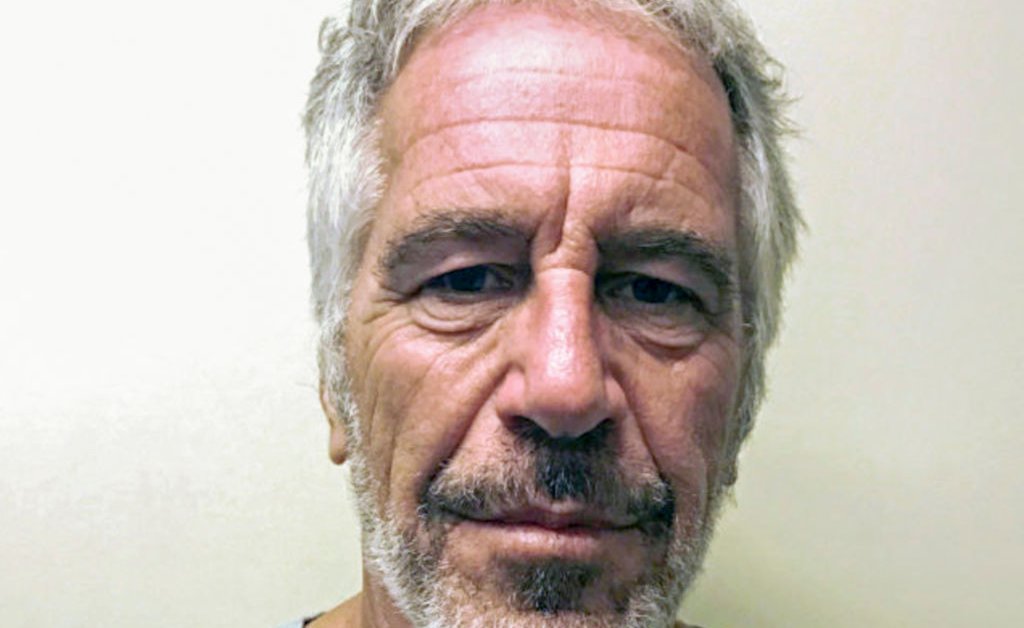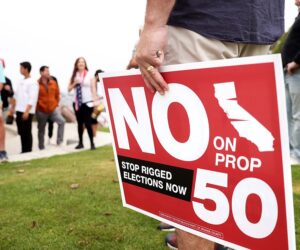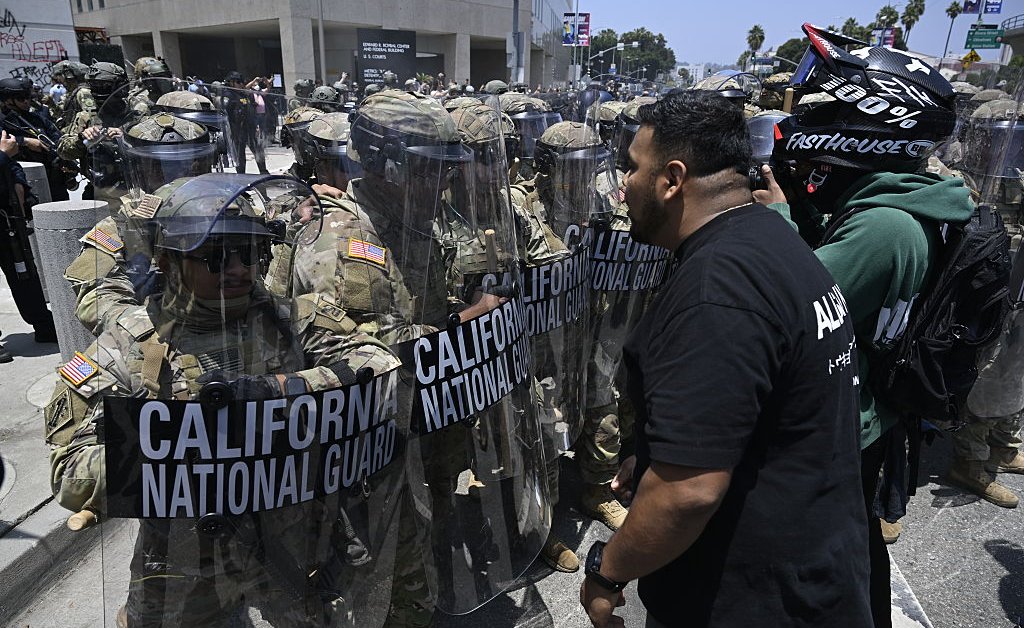“Two pictures spoiled Mads’ dream vacation,” read a headline from Norwegian newspaper Nordlys on Monday, which was amplified by British tabloid the Daily Mail on Tuesday.
Mads Mikkelsen—not the Danish actor but a 21-year-old tourist from Norway—told his hometown outlet that he was denied entry to the U.S. at Newark Liberty International Airport on June 11 after handing over his phone to Immigration and Customs Enforcement (ICE) officials who came across a meme of U.S. Vice President J.D. Vance.
Mikkelsen claimed the officials threatened him with a $5,000 fine or five years in prison if he refused to give the password to his mobile device and that, after he relented and it was scrutinized, he was sent back to Norway.
On social media, anti-Trump influencers including former Republican congressman Adam Kinzinger and #Resistance movement activist Brian Krassenstein, among others, shared reports of the denial of entry and encouraged the spreading of more Vance memes, which became popular after President Donald Trump’s explosive meeting with Volodomyr Zelensky in the Oval Office in February, when Vance demanded the Ukrainian President say “thank you” to Trump.
“These are the same people who blame Europe for a lack of free speech,” disinformation researcher Pekka Kallioniemi posted on X about the Trump Administration in relation to the story.
Tricia McLaughlin, a spokesperson for the Department of Homeland Security, which oversees ICE and Customs and Border Protection (CBP), called the claims of Mikkelsen’s denied entry over the Vance meme “FALSE” and “BS.”
CBP said in a post on X that “Mads Mikkelsen was not denied entry for any memes or political reasons, it was for his admitted drug use.”
The second photo seen by the ICE officials, by Mikkelsen’s own admission, was a wooden pipe he’d made himself a few years ago. He also told Nordlys that the officials asked him “direct questions about drug smuggling, terrorist plots, and right-wing extremism” and that he had been forced to give a blood sample.
It remains unclear why Mikkelsen was subjected to heightened scrutiny. CBP did not answer TIME’s requests for comment.
The bigger picture
Tighter immigration controls, however, have become a cornerstone of Trump’s second term.
Besides an outright ban on nationals from certain countries and heightened vigilance on nationals from others, the Trump Administration has required immigration officials to improve vetting procedures for some non-immigrant visas, including social media screening of international student visa applicants. DHS also announced in April that authorities would begin screening the social media accounts of undocumented immigrants in the U.S. for “antisemitic activity.”
While border agents have long been empowered to deny entry on a case-by-case basis, reports of increased scrutiny, detentions, and denials of tourists have proliferated in recent months.
Some incidents have sparked concerns about border agents’ discretion becoming politicized. In March, a French minister deplored how a researcher for the French National Center for Scientific Research was denied entry to the U.S. after authorities found “personal opinion on the Trump administration’s research policy” on his phone. And just last week, border agents reportedly sent back an Australian writer to Melbourne from Los Angeles after they interrogated him about his views on the conflict in Gaza.
Some countries, including China, Denmark, and Finland, have issued travel advisories to their citizens about heading to the U.S. in response to various Trump policies.
Amid all this, travelers are increasingly turning away from the U.S., and the World Travel & Tourism Council said the U.S. economy is set to lose $12.5 billion in international traveler spending this year.
There’s not much visitors can do if border officials want to deny them entry. You have the right to remain silent, an immigration lawyer told the New York Times, but a border officer is likely to deny you entry as a result. And if they detain you instead of sending you back right away, they can hold you for up to 90 days.
Nate Freed Wessler, a lawyer at the American Civil Liberties Union (ACLU), told the Guardian that after landing on an international flight but before clearing customs, you have fewer civil rights than you do elsewhere in the U.S. “The normal Fourth Amendment requirement of a warrant or individualized suspicion doesn’t apply,” he said. “The only minimal protection CBP has in their policy is distinguishing between manual and forensic searches,” he added, explaining that a forensic search of a mobile phone, for example, involves plugging it into another device to analyze it, while a manual search includes scrolling through its contents. “For a forensic search, they say they need reasonable suspicion, but they don’t define what that means. For a manual search, there are no guardrails. They argue it’s less invasive, but that’s just not true. They can still do keyword searches and spend hours combing through your device.”
“Keep calm (but delete your nudes)” advised the Guardian’s headline for tourists headed to the U.S. WIRED has advised traveling with a separate phone altogether—though a phone that appears “too squeaky clean,” it warns, “can arouse suspicion”—or at the very least minimizing risk by printing your boarding pass and any other documents you may need to present so you can avoid taking your phone out of your pocket.
Noor Zafar, a senior staff attorney with the ACLU’s Immigrants’ Rights Project, told the Washington Post that travelers should keep the contact information of an immigration attorney in case they run into complications at the border.
“The stories are definitely concerning,” Zafar said in March. “I think we’re just in a period of more aggressive policies being implemented at the border. And I think that requires people to take extra precautionary measures.”








